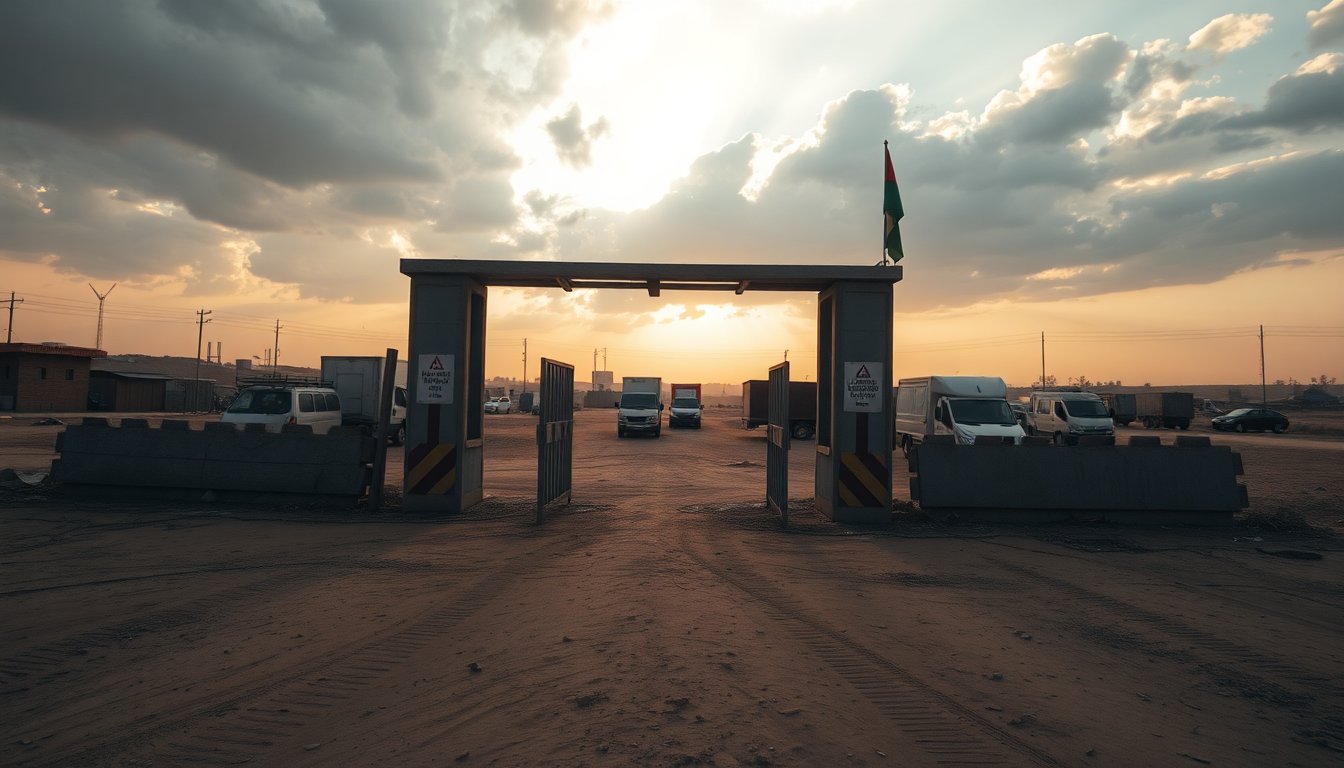Table of Contents
The humanitarian situation in Gaza remains critical as Israel has once again postponed the reopening of the Rafah crossing with Egypt. This key border point serves as a vital exit for Gazans and is under scrutiny as Israeli airstrikes continue to claim lives, even amid a purported truce. Foreign Minister Gideon Saar indicated that the crossing might be operational by Sunday; however, no specific timeline has been confirmed, leaving many uncertain about their futures.
The Coordination of Government Activities in the Territories (COGAT), responsible for overseeing civilian affairs in the occupied regions, stated that discussions with Egypt are ongoing to establish a reopening date. However, it emphasized that the crossing will not facilitate the entry of aid, asserting that humanitarian supplies must instead pass through the Karem Abu Salem crossing, following Israeli security screenings.
Humanitarian crisis deepens in Gaza
The Rafah crossing has historically represented Gaza’s primary link to the outside world, particularly as it is not directly managed by Israeli authorities. In a dramatic turn of events last May, Israeli forces seized control of this crossing, dismantling its infrastructure and deploying troops throughout the surrounding area. This marked the first time in two decades that Israeli military presence extended directly to the border.
Ceasefire agreement challenges
Despite the recent ceasefire agreement between Hamas and Israel, the United Nations has reported minimal progress in aid deliveries. As the humanitarian crisis escalates, UN officials stress that a substantial and sustained influx of aid is essential to address the urgent needs of the population. UN Undersecretary-General for Humanitarian Affairs, Tom Fletcher, highlighted that thousands of aid vehicles are now required weekly to alleviate the dire conditions, as many individuals remain displaced and without access to basic medical care.
UNICEF spokesperson Tess Ingram emphasized the critical state of food and water supply in northern Gaza, where many residents have returned to find their homes completely destroyed. She pointed out that for aid efforts to be effective, multiple crossings need to be opened to facilitate the delivery of supplies.
Critical needs and obstacles to aid delivery
Gaza’s Government Media Office described the recent aid that has been allowed into the region as merely a drop in the ocean compared to the overwhelming needs. They called for a large-scale and organized influx of essential supplies, including fuel, cooking gas, and medical materials. The office also reported that approximately 70 million tons of rubble litter the territory, remnants of the extensive bombardment over the past two years.
Challenges in recovery and reconstruction
This rubble includes the ruins of homes, facilities, and critical infrastructure. The process of clearing this debris faces significant hurdles, primarily due to restrictions on heavy machinery and construction equipment imposed by Israeli authorities. These limitations have severely hampered recovery efforts and made it nearly impossible to retrieve the bodies of victims trapped under the rubble.
In recent developments, Israel has introduced new restrictions on aid entering Gaza and delayed the reopening of the Rafah crossing, alleging that Hamas has not been prompt in returning deceased captives. Hamas, in turn, claims to have transferred all recoverable bodies to Israel but insists that further recovery efforts necessitate the entry of heavy machinery into the enclave.
Escalating violence despite ceasefire
Compounding the situation, a senior Hamas official accused Israel of violating the ceasefire agreement, citing that at least 24 individuals have been killed in attacks since Friday. They submitted a list of these incidents to mediators, arguing that Israel is actively undermining the truce.
According to reports from Gaza’s Health Ministry, the bodies of 29 individuals killed in recent Israeli airstrikes were received at local hospitals within a 24-hour period. This tally includes 22 bodies recovered from the rubble, three who succumbed to their injuries, and four fatalities from new airstrikes. Disturbingly, authorities have noted that many of the deceased display signs of torture, indicating potential extrajudicial actions. The media office in Gaza has called for an independent international commission to investigate these alleged war crimes and hold accountable those responsible for the violence against the people of Gaza.


